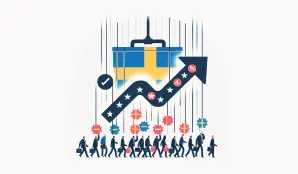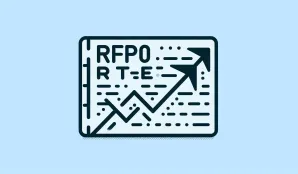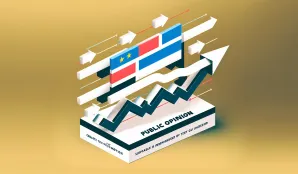Swedens Policy Rate
- Articles
- Swedens Policy Rate

The Central Bank Lowers the Policy Rate to 2.5%: What Does It Mean for Your Economy?
Today, the central bank reduced the policy rate from 2.75% to 2.5%, which is a significant change for both households and businesses. This reduction is part of a larger trend where interest rates rose sharply earlier in the year and have been declining since October. With a decreasing inflation rate, currently at 1.8% according to the latest KPIF measurement, the central bank sees opportunities to further stimulate the economy.
How Does This Affect Mortgage Loans?
For those with mortgage loans, the lowered policy rate means that borrowing costs may decrease. However, banks usually add a markup of about 1% to their mortgage loans. With the new policy rate, we can expect the following monthly costs for different loan amounts:
- 1 million kronor: At an interest rate of 3.5% (2.5% policy rate + 1% bank markup), the monthly cost will be approximately 2,917 kronor.
- 3 million kronor: At the same rate, the monthly cost will be around 8,750 kronor.
- 5 million kronor: At the same rate, the monthly cost will be about 14,583 kronor.
It is also important to remember that these loans need to be amortized, which further affects household expenses depending on the level of indebtedness.
Personal Loans and Other Loans
For personal loans, which often have a higher markup of around 2.5%, the new policy rate means that interest rates may be around 5% (2.5% policy rate + 2.5% markup). This could provide increased opportunities for consumers to refinance expensive loans or invest in major purchases.
Future Interest Rate Trends
The downward trend in inflation may allow for additional interest rate cuts in the future, which could further stimulate consumption. If inflation continues to decrease or stabilize around the current level, we can expect interest rates to remain low for an extended period.
Forecast for Food Prices, Fuel Prices, and Energy Prices
With the current inflation trend, we can expect food prices and fuel prices to stabilize. Energy prices, which are often influenced by external factors such as weather and global market conditions, may continue to be volatile. Stable or decreasing inflation can help keep these prices in check.
In conclusion, the central bank's recent decision to lower interest rates means that households can look forward to lower borrowing costs, which can increase purchasing power and stimulate the economy. However, it is important for borrowers to be aware of their repayment obligations and any changes in bank markups.
Sweden's national debt
-

Opinion Landscape: Novus February 2026 – Social Democrats Still Largest
Thu, 19 Feb 2026 - 01:35 -

Policy rate remains at 1.75% – Riksbank signals stability
Thu, 29 Jan 2026 - 14:02









